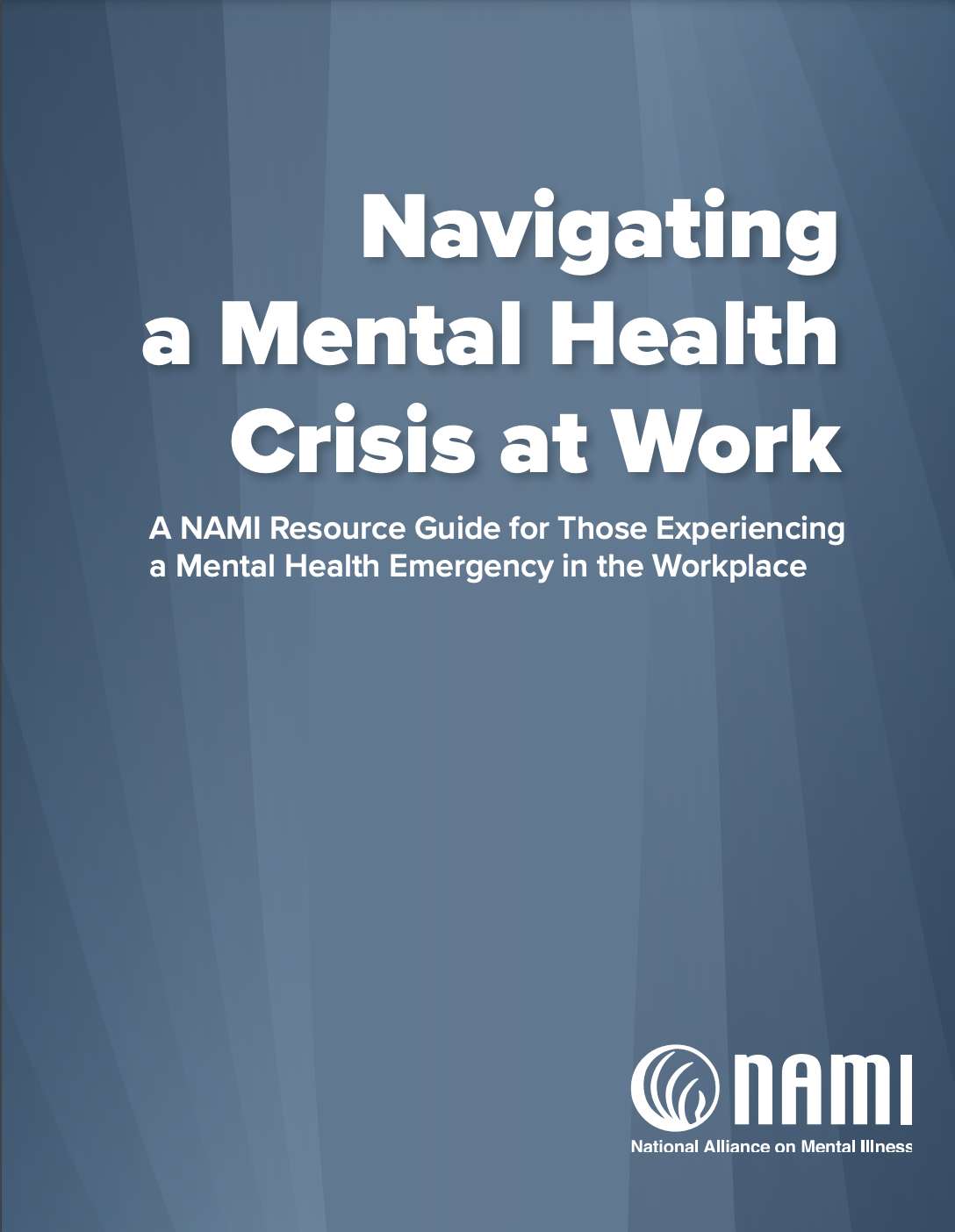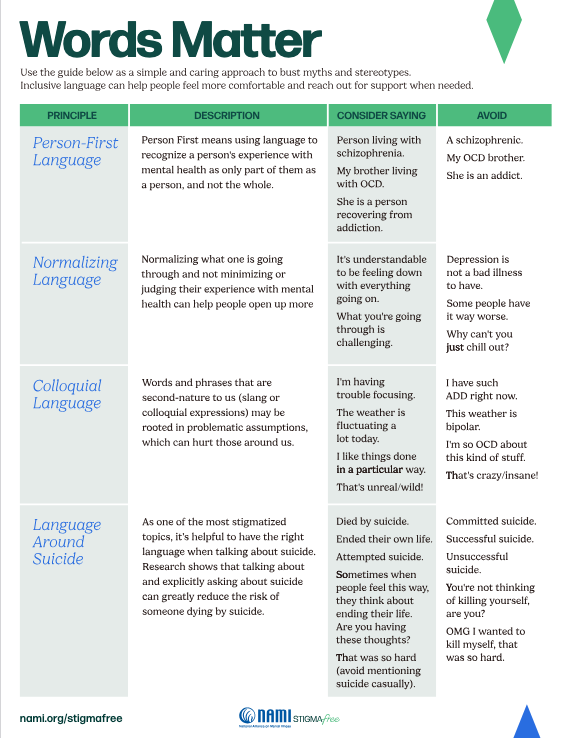Seeking Workplace Accommodations
Employees who are experiencing a mental health condition may find it necessary to seek reasonable accommodations, such as changes in schedules, work location, and other work conditions. The Job Accommodation Network provides information on accommodations for mental health conditions that might be helpful to consider. This resource provides guidance on factors to consider in seeking a reasonable accommodation or requesting leave.
Consider starting by having a collaborative conversation with your supervisor or Human Resources
- Under the Americans with Disabilities Act (ADA), employers are required to provide accommodations if you have a qualifying disability, the employer is aware of it, and you can perform the essential functions of your job with an accommodation. You will likely be required to submit medical documentation.
- Discuss with your treating provider what accommodation(s) would help you at work.
- Share what you are having trouble with and the reasonable accommodation(s) you think would be helpful.
- Emphasize that the accommodation will help improve your productivity and submit your request in writing.
- The Job Accommodation Network provides guidance on how to write a letter requesting an accommodation. Remember to include medical documentation justifying the need for the requested accommodation.
- Suggest a trial period of a few weeks or months so your employer can see that the change will not be disruptive.
If your request for accommodations is denied
- Consider reaching out to the ADA Infoline to learn more about your rights.
- If you are experiencing confusion about your rights, consider consulting an employment lawyer about qualifying for accommodations with a disability under the ADA, reasonable accommodations, and related issues.
Seeking a Leave of Absence
If mental health challenges are hindering your work, taking a leave of absence may be necessary. Under the Family and Medical Leave Act (FMLA), covered employers provide up to 12 weeks of job-protected leave to eligible employees. This allows you, should you qualify for this leave, the time needed to focus on your treatment and recovery or to support a family member with a mental health or other qualifying health condition.
The U.S. Department of Labor has developed a series of multimedia resources to help employers create workplaces that prioritize mental health. These resources are also helpful for employees interested in learning more about their mental health rights and options at work.
MORE RESOURCES
From NAMI: Succeeding at Work
From the EEOC: Depression, PTSD, and Other Mental Health Conditions in the Workplace: Your Legal Rights
The Job Accommodation Network



